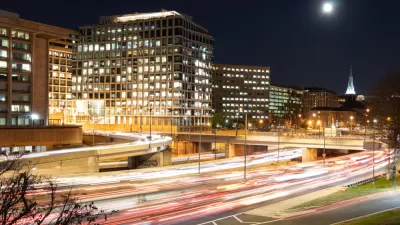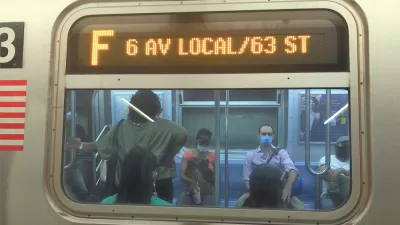Researchers around the world are trying to get an idea about how increased automobile trips, fewer shared modes, and high unemployment will alter long-term trends in transportation.

A preview of the post-pandemic commute is emerging as parts of the world loosen travel restrictions and stay-at-home orders, according to an article by Laura Bliss, but the message so far is mixed. On the one hand, people are choosing cars over public transit, but on the other hand, some people are driving less.
Peak rush-hour traffic in Shenzhen is roughly 10% over its 2019 baseline, while congestion in Auckland, New Zealand, is creeping up every day. In North America, gasoline demand is rising and cars are retaking the streets, while mass transit ridership remains low and working from home is the status quo for 2020 (and possibly onwards) at tech-forward employers such as Google, Facebook and Twitter.
Already thinking beyond the short-term effects in a few specific locales, researchers are endeavoring to predict post-pandemic trends in transportation. Bliss surveys the emerging body of research on the subject, finding evidence that people all over the world are rethinking commutes, and not everyone is necessarily going to be jumping behind the wheel at every possible opportunity.
Still, according to one study by researchers at Vanderbilt University, congestion could become an overwhelming challenge if most people end up replacing transit trips with car trips.
Dense cities such as New York and San Francisco that are more reliant on public transit and have lower capacity for vehicle traffic were much more sensitive to added cars, compared to more auto-oriented cities such as Los Angeles and Atlanta. For example, if just one in four transit and carpool commuters start to drive alone, San Francisco could witness a 20-minute increase in daily vehicle travel times. That shoots up to a 40-minute increase if three in four of those commuters switch.
Another caveat must be noted, however: projections like those in the previous passage don't capture the effects of fewer people driving, either because they are working from home, or because they don't have a job to drive to every day.
FULL STORY: What the Post-Pandemic Commute Could Be

Study: Maui’s Plan to Convert Vacation Rentals to Long-Term Housing Could Cause Nearly $1 Billion Economic Loss
The plan would reduce visitor accommodation by 25,% resulting in 1,900 jobs lost.

North Texas Transit Leaders Tout Benefits of TOD for Growing Region
At a summit focused on transit-oriented development, policymakers discussed how North Texas’ expanded light rail system can serve as a tool for economic growth.

Using Old Oil and Gas Wells for Green Energy Storage
Penn State researchers have found that repurposing abandoned oil and gas wells for geothermal-assisted compressed-air energy storage can boost efficiency, reduce environmental risks, and support clean energy and job transitions.

Private Donations Propel Early Restoration of Palisades Playground
Los Angeles has secured over $1.3 million in private funding to restore the Pacific Palisades playground months ahead of schedule, creating a modern, accessible space that supports community healing after recent wildfires.

From Blight to Benefit: Early Results From California’s Equitable Cleanup Program
The Equitable Community Revitalization Grant (ECRG) program is reshaping brownfield redevelopment by prioritizing projects in low-income and environmental justice communities, emphasizing equity, transparency, and community benefits.

Planting Relief: Tackling Las Vegas Heat One Tree at a Time
Nevada Plants, a Las Vegas-based nonprofit, is combating the city’s extreme urban heat by giving away trees to residents in underserved neighborhoods, promoting shade, sustainability, and community health.
Urban Design for Planners 1: Software Tools
This six-course series explores essential urban design concepts using open source software and equips planners with the tools they need to participate fully in the urban design process.
Planning for Universal Design
Learn the tools for implementing Universal Design in planning regulations.
Ascent Environmental
Borough of Carlisle
Institute for Housing and Urban Development Studies (IHS)
City of Grandview
Harvard GSD Executive Education
Toledo-Lucas County Plan Commissions
Salt Lake City
NYU Wagner Graduate School of Public Service





























